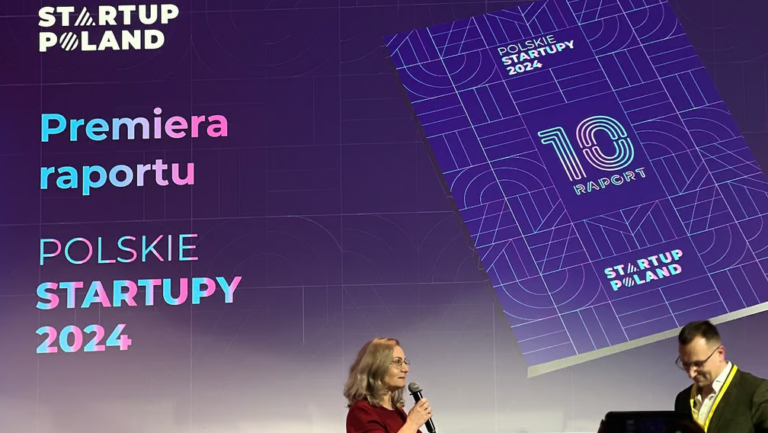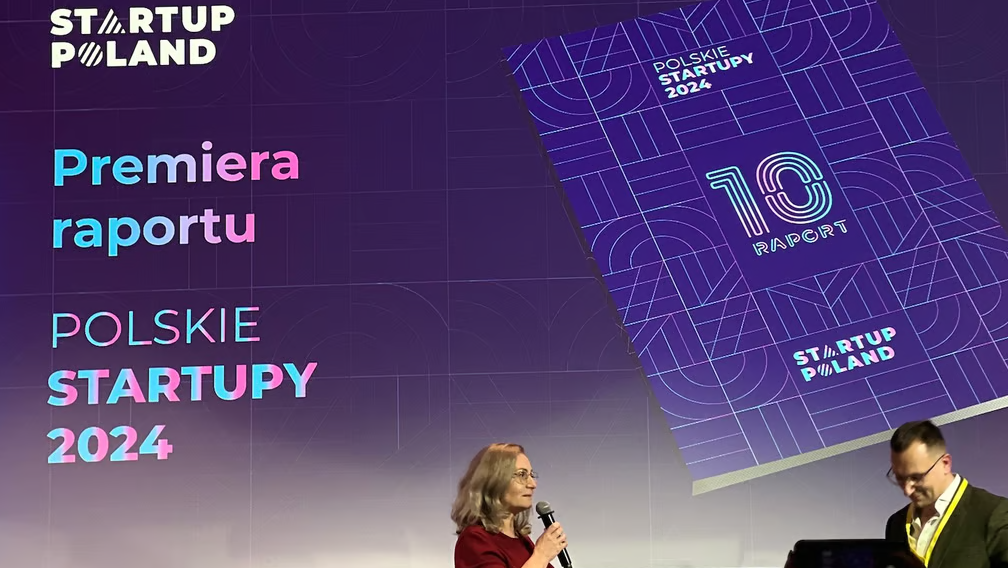Wrocław wśród wybijających się metropolii
Podobnie jak w minionych latach, również w 2024 roku w badaniu zarysował się wyraźny podział poszczególnych regionów kraju, jeśli chodzi o liczbę startupów. Prymusami są Mazowsze oraz Dolny Śląsk, gdzie powstaje i funkcjonuje najwięcej rodzimych młodych spółek technologicznych.
“Przewaga tych dwóch regionów, a w szczególności dwóch metropolii, Warszawy i Wrocławia, była i nadal jest znacząca.”
– Tomasz Snażyk, CEO Startup Poland
W tegorocznym badaniu 22 proc. ankietowanych firm jest zarejestrowanych w województwie mazowieckim, a 20 proc. w dolnośląskim. Natomiast Małopolska w tym roku została prześcignięta przez województwo lubelskie, które po raz pierwszy znalazło się na podium. Jednak dystans do dwóch faworytów jest wciąż znaczny. Z Lublina i okolic wywodzi się 9 proc. badanych firm. Kraków z Małopolską oraz Rzeszów z Podkarpaciem uplasowały się ex aequo na pozycji czwartej (8 proc.). W pozostałych regionach odsetek badanych firm nie przekracza 5 proc. W badaniu najgorzej wypadły: lubuskie, opolskie oraz zachodniopomorskie.
Ponownie ogromne osiągnięcie
Jak twierdzi Paulina Muszyńska, kierowniczka Startup Wroclaw, obecność w czołówce kolejny rok z rzędu to niesamowite osiągnięcie. Startup Wroclaw organizuje wydarzenia, promuje lokalne firmy za granicą, pomaga w zdobywaniu finansowania i oferuje szkolenia. Łączy siły sektora prywatnego i publicznego.
Warto wspierać innowacje
Zdaniem Magdaleny Okulowskiej, prezes Agencji Rozwoju Aglomeracji Wrocławskiej, to właśnie startupy są często największą dźwignią innowacji.
“Jesteśmy dumni, że wrocławski ekosystem dynamicznie się rozwija i buduje swoją silną pozycję w Polsce i Europie. Doskonale rozumiemy, jak ważne, zwłaszcza w trudnych czasach, jest wspieranie młodych, innowacyjnych firm. Dlatego z pełnym zaangażowaniem będziemy kontynuować działania na rzecz tworzenia sprzyjających warunków dla ich rozwoju w naszym regionie.”
– Magdalena Okulowska
“Z naszej perspektywy inwestowanie w startupy to inwestowanie w klasę kreatywną miasta. Takie bogactwo jest nie do przecenienia: buduje energię, przewagi konkurencyjne i rozwija Wrocław.”
– Radosław Michalski, dyrektor Departamentu Marki Miasta w UM Wrocławia
Króluje sprzedaż i modele licencyjne
Z raportu „Polskie Startupy 2024” wynika także, że rodzime startupy są raczej małe. Tylko 4 proc. badanych deklaruje, że liczba pracowników przekracza u nich 51 osób, 6 proc. wskazuje, że w ich zespole pracuje między 21 a 50 osób. Zespoły kilkunastoosobowe posiada 13 proc. pytanych. Niemal co trzeci startup w Polsce (31 proc.) zatrudnia między 4 a 10 osób. Badanie pokazało, że modele przychodowe młodych firm technologicznych opierają się głównie na sprzedaży oraz modelu licencyjnym. Aż 64 proc. badanych wskazało na sprzedaż np. produktów, reklam, treści czy usług, a 54 proc. na udzielanie klientom licencji np. na korzystanie z danej technologii. Połowa startupów (56 proc.) stosuje sztuczną inteligencję do zwiększenia efektywności pracy, a dla 13 proc. firm AI jest kluczowym elementem modelu biznesowego. Jedynie 3 proc. firm zauważa, że wpływa ona negatywnie na ich działalność.
Nie wszystkim wiedzie się dobrze
Raport wskazuje także, że aż 43 proc. startupów odnotowało znaczące wzrosty przychodów w ciągu ostatniego roku, a kolejne 26 proc. deklaruje, że są one umiarkowane. Niemniej jednak 8 proc. firm zgłasza duży spadek przychodów, co wskazuje na różnorodne rezultaty, zależne od branży i sytuacji finansowej. Okazuje się, że najczęstszą motywacją do poszukiwania inwestorów jest chęć ekspansji międzynarodowej (46 proc.), a także pozyskanie smart money (45 proc.) – wsparcia finansowego połączonego z know-how oraz zasobami technologicznymi. Wzrost zainteresowania inwestorami z międzynarodowym doświadczeniem odzwierciedla ambicje polskich startupów, które dążą do globalnej konkurencji. Aż 91 proc. rozważa rozwój na rynku europejskim, przy czym 37 proc. najchętniej rozszerzyłoby działalność na Niemcy, a 29 proc. – na Wielką Brytanię. Rynek amerykański kusi aż 60 proc. firm. Zainteresowanie wzbudza także Azja (30 proc.).
Pesymistyczne nastroje w sektorze
Według danych zawartych w raporcie sytuacja finansowa polskich startupów pozostaje dość trudna. Aż 56 proc. z nich wskazuje na utrudniony dostęp do finansowania, co potwierdza pesymistyczne nastroje w sektorze. Z kolei 16 proc. firm podkreśla problem niekorzystnych wycen, co skutkuje niższymi nakładami na rozwój. Główną barierą w rozwoju dla polskich startupów są rosnące koszty pracy. Stanowią one istotną przeszkodę dla 50 proc. z nich. Okazuje się, że w obliczu konkurencji ze strony korporacji, które oferują wyższe płace i stabilne zatrudnienie, startupy mają trudności z przyciągnięciem specjalistów, a brak pracowników zgłasza 18 proc. badanych.






